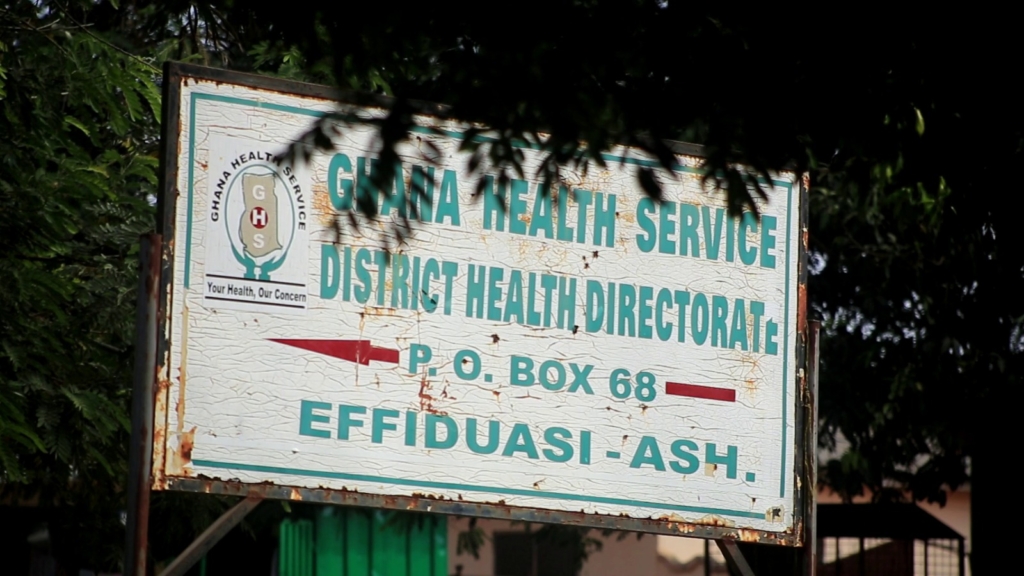Once seen as diseases of the rich, conditions like hypertension, stroke, diabetes, and heart disease are now affecting people of all backgrounds in Ghana. These Non-Communicable Diseases (NCDs) are quietly claiming lives, devastating families, and putting pressure on the healthcare system. But one district is not giving up without a fight.
In the Sekyere East District of the Ashanti Region, health officials are stepping up efforts to fight the rise of NCDs through education, early detection, and community outreach. The District Director of Health Services, Dr. Justice Ofori-Amoah, says they are determined to address the issue head-on, stressing that “no stone will be left unturned” in the battle to protect lives and improve public health.
“We are doing everything possible to continue to bring the numbers down,” said Dr. Ofori-Amoah. According to him, the District Health Management Team, in collaboration with other stakeholders, is committed to tackling the rising burden of NCDs.
He noted that many of these conditions are linked to poor diets and have become a growing concern in Sekyere East. “These diseases have existed for some time, but now more than ever, we need strong advocacy and widespread public awareness,” he emphasised.
A family’s painful loss, living with fear and the daily struggles
Akwasi Boateng was just 61 years old when he died from high blood pressure. According to his younger brother, Samuel Wiredu, Akwasi never took his medication seriously, and his condition was left untreated. His death has left a huge gap in the family.
“Our mother is also battling hypertension now. We are doing all we can to help her,” Samuel said.
Their story is not unique. Many families across Ghana are losing loved ones to NCDs.
57-year-old Akua Tiwa has been living with high blood pressure for years. She takes her medicine every day and tries to stay active, but she admits that the fear of complications never goes away.
“It’s scary. I try to do everything the nurses say, but sometimes I wonder if it’s enough,” she said.
Another resident, 73-year-old Akua Boakyewaa, suffered a stroke that changed her life completely. She now depends on her daughter, Patricia Wiredua, for everything.
“She can’t walk or do anything by herself anymore,” said Patricia. “Stroke runs in our family. My aunt had it too.”
Esther Kusi, 34, is a diabetic patient who battles daily to stay healthy. Her life now revolves around managing her blood sugar and avoiding triggers.
“I try to eat well and take my medicine, but it’s not easy. Some days are really tough,” she explained.
Health workers interventions
A health worker at the Ntunkumso CHPS compound, Rose Mary Aboagye, has been helping patients like Esther manage their conditions. She says many people wait too long before seeking help.
“The ages of clients that come here range between 35 and 60 years. We give them drugs, counsel them and guide them on their diet through education,” she said.
The district has transformed one of its offices into a dedicated cervical cancer clinic to offer services to women and raise public awareness. Public health nurse Belinda Darkuwa, who supports women battling breast and cervical cancer, says many of the cases she handles could have been prevented through early screening.
“People fear going to the hospital. But by the time they come, the cancer is already advanced,” she said.
The Ghana Health Service and the Ashanti Regional Health Directorate are not standing still. With support from officials like Dr. Fred Adomako, they are rolling out health campaigns to raise awareness about NCDs and promote healthy living.
“With the current holistic assessment that we have done for the region, the figures are good,” Dr Adomako said.
Both global threat and local trend
Globally, NCDs kill 41 million people each year—around 70% of all deaths. In Ghana, NCDs account for 43% of deaths, with cardiovascular diseases being the most common cause.
Health authorities in the Sekyere East District report a steady decline in hypertension cases over the past five years. In 2020, the district recorded 6,764 cases. This dropped slightly to 6,234 in 2021, then declined further to 4,046 in 2022. By 2023, the figure had fallen to 2,296 cases. As of October 2024, only 1,660 cases have been documented. Between 2020 and 2021, hypertension cases dropped by 7.84%. The downward trend continued with a 35.09% reduction from 2021 to 2022, followed by a sharper 43.27% decline in 2023. From 2023 to October 2024, the cases further decreased by 27.7%.
There has been a 75% overall drop in recorded hypertension cases from 2020 to October 2024. Each year has shown significant progress, especially between 2021 and 2023. This trend may reflect improved early detection, increased awareness, and better treatment adherence. However, health officials remain on high alert, possibly due to underreporting, risk of relapse, or undiagnosed cases still present in the population.
According to the World Health Organization (WHO), if nothing is done, NCDs will become the leading cause of death in Africa within the next 15 years.
“The awareness is being created and people are reporting to health facilities. Most of them are being kept under medication and therefore we will live to have any complications including death,” Dr Ofori-Amoah said.
Hope through Prevention
Despite the declining numbers in Sekyere East, health experts believe that with the right actions, NCDs can be prevented or managed. Healthy diets, regular exercise, routine check-ups, and avoiding harmful habits like smoking and excessive drinking can save lives.
Dr Ofori-Amoah said the fight is far from over, but the progress in places like Sekyere East shows that Ghana can win the battle—if communities, health workers, and individuals work together.
As Samuel Wiredu puts it, “If my brother had taken his condition seriously, maybe he would still be here. I don’t want to see others go through the same pain.”
DISCLAIMER: The Views, Comments, Opinions, Contributions and Statements made by Readers and Contributors on this platform do not necessarily represent the views or policy of Multimedia Group Limited.

